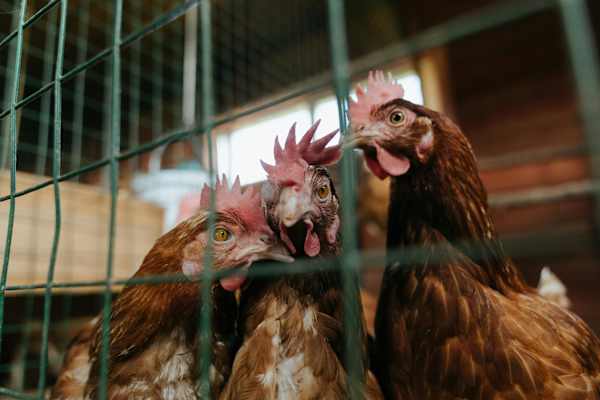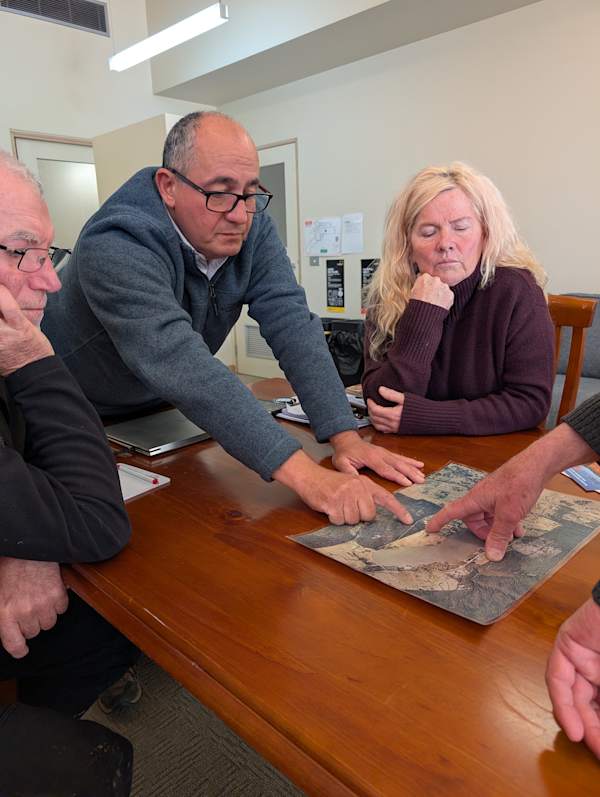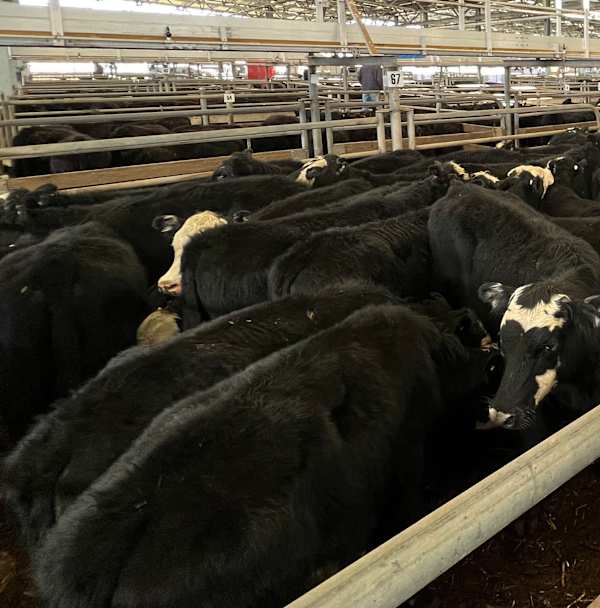DRY conditions throughout the state are expected to contribute to a deflated cattle market in the coming weeks, as local vendors patiently await the region's first significant rains of the year.
Some 800 head of locally bred cattle went under the hammer at Wangaratta's Store Cattle Sale on the first Friday of the month in March, as a limited field of buyers continued to search for a bargain at the local livestock exchange.
In the wake of a bumper year for the North East's cattle industry fueled by consistent rainfall, Corcoran Parker livestock agent Reiley Murtagh said the landscape had changed significantly to begin 2023.
"For everyone, the game definitely has changed, and it has come down a fair way on what we saw last year," he said.
"It's all seeing a bit of a flow on effect with what's happening down south – all of Victoria is pretty dry, everyone's looking for a rain and probably holding their cards pretty close to their chest.
Latest Stories
"We still had our normal operators buying, like our commission buyers and a few agents buying for traders, but there isn't a big push from many grass buyers around the area that are really jumping out and buying cattle – they're all pretty stagnant at the minute.
"This trend will continue, it'll stay down I guess – we won't see any great rises until there is a rain through all of Victoria and probably southern New South Wales, even northern NSW – it's all just in the air at the minute."
Steers weighing around 530kg saw competitive prices at $3.60/kg, while feeder weight cattle ranging between 380 and 440kg returned prices of up to $4/kg, according to Mr Murtagh.
Heavier cows with calves at foot averaged around $2500, although lighter cows with young calves fell to between $1200 and $1450 depending on their condition.
Mr Murtagh said he hoped a change of fortunes was on the horizon for local producers, with Wangaratta's next store cattle sale set for April 14.
"It's hopefully hit a bit of a bottom," he said.
"If we see a widespread rain down here we'll see it lift, but if it's going to continue to be dry, we won't see much of a lift, it'll stay pretty firm on where it is.
"For your traders, they are selling cattle for a fair bit less (than 2022), but buying cattle back in still works for them – you can buy cattle in and get that cheaper rate and keep turning over.
"It's still pretty good."
Paul and Scollard livestock specialist Dan Ivone, believes however that there are positive signs for the market coming into the winter season.
"There were a range of factors that were happening at the same time to cause the market to get dearer," he said.
"The drought and then the floods up north and then the fires caused cattle numbers to go down so that made the market dearer.
"Now it's going the other way and again, it's not just one factor, it's a lot of little things that are all happening, to my understanding.
"The constant rain we had meant pasture didn't grow as well as we wanted and therefore cattle didn't go as well as we thought.
"Cattle need some heat and we only had a little in January which was warm enough to finish the cattle off.
"It's the same weather in South Australia and the bottom of NSW where it's become very dry so people aren't going to buy cattle because the feed isn't there.
"That then put pressure on the market with an over supply of cattle and abattoirs having trouble getting workers so the kills aren't as big and there's a fair bit of meat in cool storage so meat isn't moving as freely as it normally is."
Mr Ivone said another factor would be that America had a very dry season and have to kill their own stock instead of importing our meat.
"When they get rain over there that will have a positive impact on our market too," he said.
Mr Ivone said going forward there are positive signs that the market will return to normal.
"I think it will go back to how our season used to be, where we get some rain at the end of March and then you get the autumn break.
"Because of that you'll find there's less pressure to sell cattle and the market will pick up again.
"Restockers haven't been able to operate because they haven't made any money on cattle they bought last year in extreme prices so they're a bit gun shy.
"Going forward I don't think we'll see the big highs we saw last year, it will be an improvement on where it is now.
"Winter contracts won't look too bad for people who can finish cattle during the winter.
"The signs are that it should be alright."














